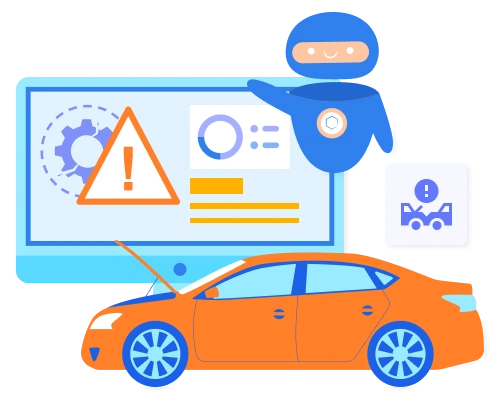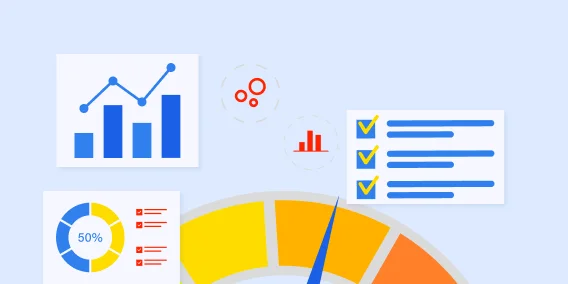 ×
×

Modernizing Automotive Damage Assessment with AI and AWS
Our client, a leading automotive repair service provider, faced increasing challenges in quickly and accurately assessing vehicle damages for insurance claims, repairs, and customer estimates. Traditional manual inspections consumed time, increased errors, and delayed decision-making. By using Amazon Bedrock and OpenSearch vector search, the client transformed their damage processing workflow, enabling faster, scalable, and more accurate repair cost assessments, resulting in enhanced customer satisfaction and operational efficiency.

Faster Onsite Damage Assessment
Increase in Estimate Accuracy
Reduction in Claim Processing Delays
Lower Overall Operational Costs
Customer Challenges
The client’s existing damage assessment process was slow, inconsistent, and difficult to scale, impacting operational efficiency and customer trust.

Manual Inspections Slowed Operations
Damage inspections were performed entirely by trained staff using visual checks and manual data entry. This not only consumed hours per case but also created bottlenecks when claim volumes spiked, especially during peak accident seasons or weather events. The lack of automation meant technicians could only process a limited number of assessments per day, directly affecting repair turnaround times.

Inconsistent & Error-Prone Estimates
With assessments relying heavily on human judgment, estimates varied significantly depending on the inspector’s expertise and experience. Minor damages were sometimes overlooked, while in other cases, repair costs were overestimated, leading to disputes with customers and insurers. This inconsistency eroded trust and caused delays in claim approvals.

High Data Volume & Complexity
Over the years, the client had accumulated thousands of damage cases, each with images, notes, repair histories, and cost data. Manually retrieving and comparing similar cases was nearly impossible. The variety in vehicle types, damage severity, and repair methods created further complexity, making it challenging to identify patterns that could improve accuracy.

Delayed Claims & Customer Dissatisfaction
Lengthy assessment cycles slowed claim approvals and vehicle repairs, frustrating customers and damaging the client’s service reputation. In some cases, customers had to wait several days before receiving an estimate, delaying their decision-making and increasing the likelihood of choosing alternative repair providers.
Solutions
NeenOpal designed and implemented an AI-powered damage appraisal system that automated inspections, standardized cost predictions, and scaled effortlessly with demand.
Leveraging Amazon Bedrock, NeenOpal integrated Claude 3 Haiku and Titan Multimodal Embeddings to process both images and related metadata. The AI could detect scratches, dents, and structural issues from photos, while cross-referencing relevant vehicle details to produce a comprehensive understanding of the damage profile.
To ensure accuracy, the solution incorporated vector search to semantically match new damage cases against a library of thousands of historical records. This allowed the system to find similar past cases instantly, providing a reliable data-backed reference for generating repair estimates. The semantic matching worked even when images varied in lighting, angle, or resolution.
Once relevant historical matches were identified, the system calculated an average repair cost based on top matches, adjusting for inflation, labor rates, and parts availability. This eliminated guesswork, produced consistent estimates, and ensured both under- and overestimation risks were minimized.
The platform was designed with an intuitive dashboard for technicians, insurers, and customers. Technicians could upload photos and receive repair estimates with confidence scores and case references quickly. Customers could view transparent cost breakdowns, boosting confidence in the repair process.
Built on ECS, S3, and CloudFront, the system could handle large volumes of concurrent assessments without performance drops. This serverless-ready architecture ensured the client could scale operations during high-demand periods, all while maintaining speed, security, and compliance.
Services Used

Amazon Bedrock

Amazon OpenSearch Service

Amazon S3

Amazon ECS

Amazon ECR

AWS CloudFormation

Amazon CloudFront

AWS IAM

AWS Systems Manager
Why choose NeenOpal?
NeenOpal brought expertise in designing scalable AI-driven solutions tailored to the automotive sector. With deep AWS experience, we integrated Bedrock, OpenSearch, and ECS seamlessly for our client. Our data-driven approach ensured operational efficiency, minimized errors, and enabled our client to future-proof their damage assessment process with adaptive AI technologies.
Benefits
The AI-powered damage assessment platform delivered measurable, high-impact improvements across speed, accuracy, cost efficiency, and customer satisfaction.
Conclusion
By adopting Amazon Bedrock and OpenSearch, our client modernized its damage appraisal workflow. The solution streamlined operations, improved customer trust, and reduced costs. With scalable AI-driven assessment, our client is positioned to handle future growth, ensuring faster, accurate, and customer-centric automotive repair services.











